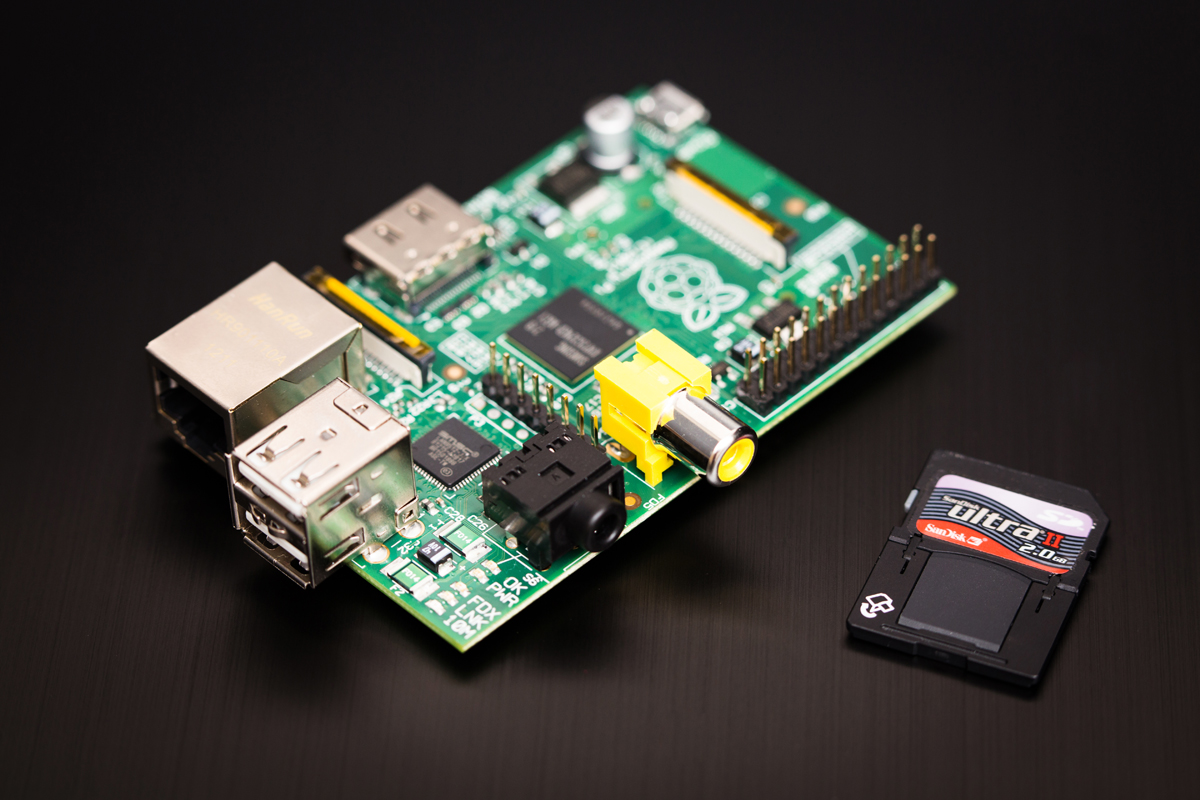Another brief interlude in the series of posts about #coursedata demonstrators.
On Tuesday evening I nipped down to the #BuildBrighton hackspace for the monthly meetup of the Brighton Raspberry Pi user group.
For those who’ve been living in a hole for the last year, the Raspberry Pi is a great little bare bones computer, very much in the mould of the 1980s home computing favourites like the BBC micro, and Sinclair ZX80. The board is about the size of a credit card (in fact it is exactly the size of a credit card) costs £25, and takes normal USB keyboard, mouse and plugs into an HDMI tv.
You can pop any operating system that takes your fancy onto a SD card, though most popular are a range of Linux Debian variants- like Rasbian.
At the meetup Chris Swan (blog.thestateofme.com, @cpswan) talked about the OpenELEC (Open Embedded Linux Entertainment centre) distribution of XBMC (XBox Media Centre) for RPi and MAME the popular arcade machine emulator, both of which really show off how powerful the tiny Pi is.
OpenELEC 3 is nearing completion, with XBMC 12. Once connected to a network with NAS (Network attached storage), it will stream and run music, video etc, much like an Apple Tv… but much cheaper.

OpenELEC is a stripped down Linux build, just enough to run XBMC, booting straight to XBMC. It has a minimal kernel, and drivers for TV receivers etc need selecting at build. Everything else goes on a SquashFS file called: system (read only, compressed) with a very small footprint, which fits into 256Mb – though this is now pretty academic, as storage has evolved, and is very cheap.
The evening rounded off with a 4 way LAN game of Quake 3 played on Raspberry Pi.

Afterward a conversation started on how the Pi can be used in education, and the artificial boundaries between different disciplines cropped up. When time is tight it’s hard to build in capacity to teach and learn the additional skills needed to use something like the Pi, and sometimes the technology simply ends up with the IT folk.
However the push to encourage students into STEM (Science Technology Engineering and Maths) is growing in importance, as Prof Brian Cox mentioned in his BETT presentation, there is a need for a million STEM graduates just to keep pace with current demand.
Which brings me to the good news that Google have stumped up the cash for 15,000 Rasberry Pis to be given away to schools.
The Raspberry Pi Foundation will work with Google and six UK educational partners to identify students who will benefit from access to a Pi. CoderDojo, Code Club, Computing at Schools, Generating Genius and Teach First will be supporting the initiative, and OCR will put together 15,000 free teaching and learning packs to go with the Raspberry Pis.

The Brighton Pi mailing list: https://groups.google.com/forum/#!forum/brightonpi
